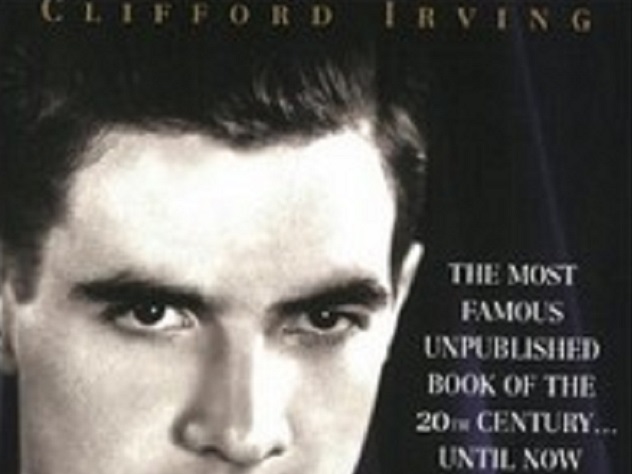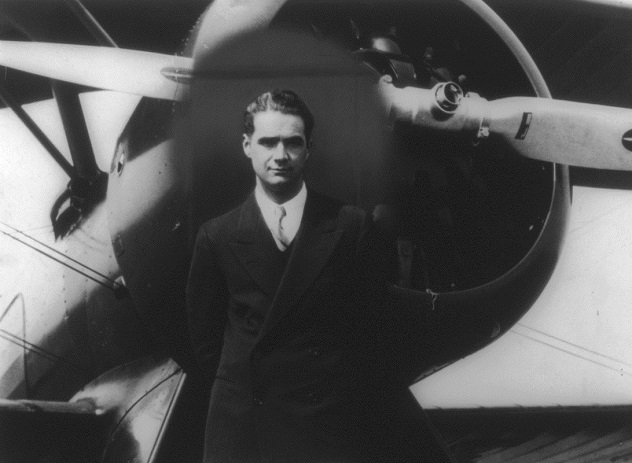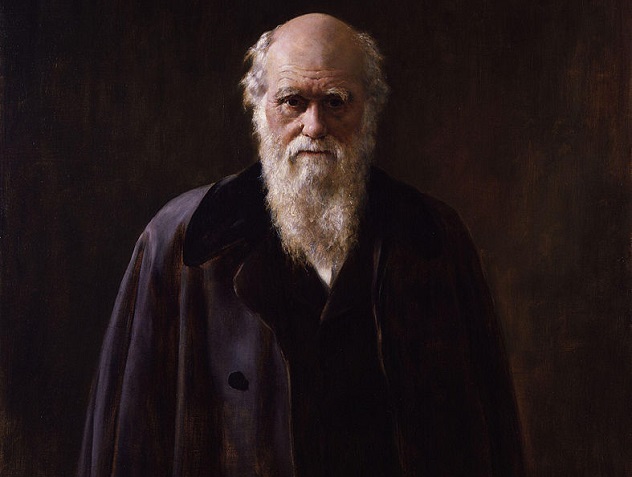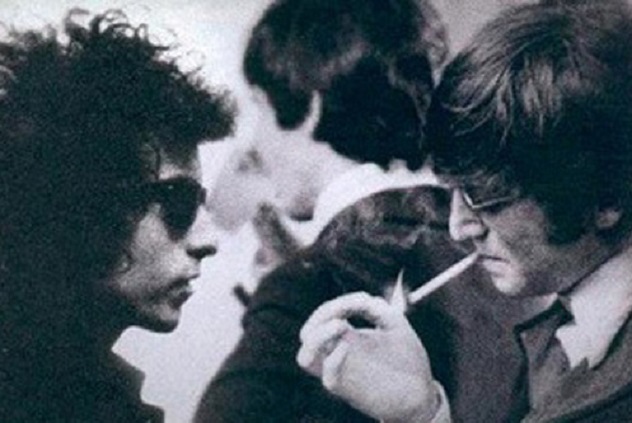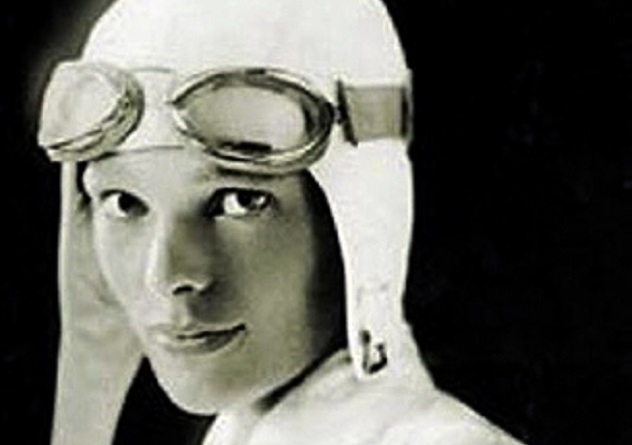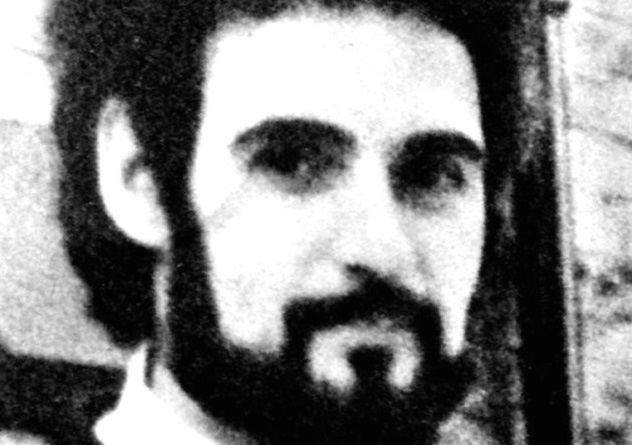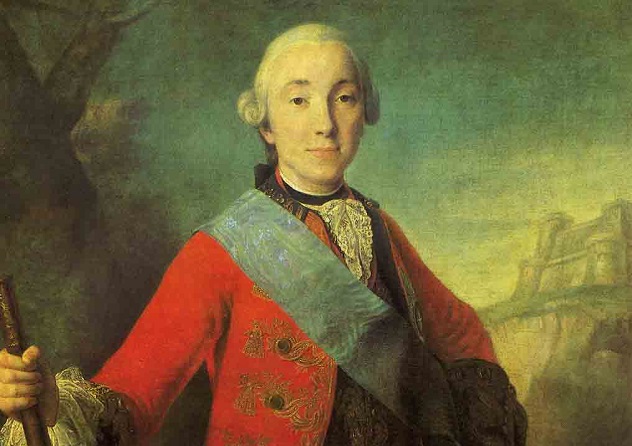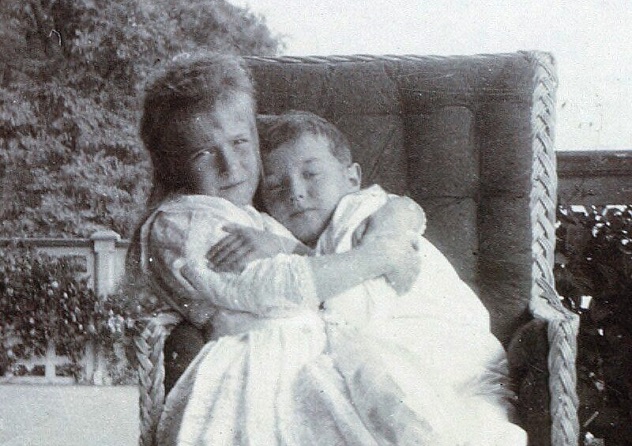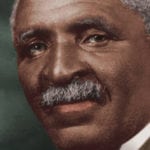10Clifford Irving Published A Fake Autobiography Of Howard Hughes
Business tycoon Howard Hughes was one of the wealthiest and most famous men in the world, but his immense struggles with obsessive-compulsive disorder and mental illness caused him to become a total recluse. He was almost never seen in public for the last two decades of his life. As a result, Hughes was a prime target for hoaxers who wanted to capitalize on his fame. In January 1971, author Clifford Irving told publisher McGraw-Hill that he had been contacted by Howard Hughes, who wanted him to ghostwrite his autobiography. With the help of fellow author Dick Suskind, Irving had conducted extensive research into Hughes’s life and presented a series of forged letters to McGraw-Hill to convince them that Hughes’s offer was real. The publisher believed Irving’s story and paid him a hefty sum to write the book. Because of Hughes’s reclusive nature, Irving assumed the billionaire would never want to come out into the spotlight to expose the autobiography as a fraud. Since Hughes was notorious for his erratic behavior, it seemed perfectly plausible that he would refuse to make contact with anyone except Irving. Even those who knew Hughes personally were fooled by the forged letters and Irving’s finished manuscript, and they became convinced that the author’s interactions with Hughes were genuine. The autobiography was scheduled to be released in 1972, but on January 7 of that year, Howard Hughes shocked everyone by organizing a telephone press conference with reporters. Hughes confirmed that he never knew Clifford Irving and that his so-called “autobiography” was a hoax. Publication of the book came to a halt, and Irving and Suskind were both indicted for fraud.
9Melvin Dummar Forged Howard Hughes’s Will
Clifford Irving wasn’t the only person who attempted to profit from a fabricated relationship with Howard Hughes. Melvin Dummar was an ordinary service station attendant from Willard, Utah who claimed that on the evening of December 29, 1967, he was driving down a lonely stretch of Highway 95 through the Nevada desert when he picked up a disheveled man lying by the side of the road. Dummar drove the man to the Sands Hotel in Las Vegas, but before he exited the vehicle, the man allegedly claimed that he was Howard Hughes. Hughes passed away on April 5, 1976, and shortly afterward, an envelope was discovered in the Salt Lake City branch of the Church of Jesus Christ of Latter-day Saints. It contained a handwritten will that was dated March 19, 1968 and supposedly written by Hughes. The billionaire left his vast fortune to a wide variety of people, but most curiously, one-sixteenth of his estate—approximately $156 million—wound up being left to Melvin Dummar. When Dummar learned about the will, he explained that Hughes had chosen to leave him such a sizable fortune as a reward for saving his life in 1967. However, authorities became suspicious when they discovered Dummar’s thumbprint on the envelope in which the will was found. The will was also filled with a number of strange inconsistencies that seemed to indicate that Hughes was not the real author. A probate court eventually ruled that the will was a forgery and that Dummar was not entitled to any portion of Hughes’s estate. In 2006, Dummar filed a lawsuit to reclaim his so-called inheritance, but unfortunately for him, the suit was tossed out.
8Lady Hope Fabricated The Story About Charles Darwin Recanting Evolution On His Deathbed
Charles Darwin, the father of the theory of evolution, was one of the most important and influential scientific figures of all time. Of course, many creationists and religious figures have attempted to discredit Darwin’s theory, but the most notorious example of evangelical meddling involved a woman known as “Lady Hope.” Born Elizabeth Cotton, she changed her name after getting married and becoming a prominent Christian evangelist. By August 1915, Lady Hope was a bankrupt widow, but she made headlines after sharing a surprising story at a Bible conference in Northfield, Massachusetts. Hope claimed that she had visited Charles Darwin shortly before his death in April 1882. According to Hope, the gravely ill Darwin clutched a Bible on his deathbed and allegedly stated that he was “a young man with uninformed ideas” when he came up with the theory of evolution. She insisted that he expressed regret that his theory had become accepted as fact. Darwin had apparently renounced his life’s work and reverted back to Christianity before he passed away. Lady Hope’s story soon garnered widespread publicity when it was published in a Baptist magazine. However, Darwin’s children denounced Hope’s story as a complete lie, claiming that their father never recanted any of his scientific views on his deathbed and that Hope never even met him. Given that Lady Hope decided to wait until 33 years after Darwin’s death to mention his so-called retraction, her tale has largely been discredited as a hoax by historians. Nevertheless, the story managed to garner enough attention that some creationists still treat it as fact.
7Rolling Stone Released A Fake Album By The World’s Most Famous Musicians
It goes without saying that if The Beatles, Bob Dylan, and Mick Jagger had decided to combine their musical talents and record an album together, the end result would have been one of the most popular albums of all time. Believe it or not, there was one occasion when many people were fooled into believing that such an album existed. The October 18, 1969 issue of Rolling Stone magazine contained a review for an album by a mysterious group called The Masked Marauders. Though none of the musicians were credited on the album cover, the reviewer claimed that he recognized their voices. He was certain that The Beatles, Mick Jagger, and Bob Dylan had decided to get together for a secret jam session and recorded it as a bootleg album. In actuality, Rolling Stone’s review of this nonexistent album was nothing more than a piece of tongue-in-cheek satire, but many readers took it seriously. They thought the album was legitimate and started searching for it at record stores. In response, Rolling Stone music critic Greil Marcus, who had written the fictitious review under a pseudonym, decided to run with the idea. He hired an obscure group named The Cleanliness and Godliness Skiffle Band to record some songs that would be passed off as the legendary collaboration. Once these songs started getting airtime on the radio, Warner Bros. offered a $15,000 advance to produce an album, and the fictitious album officially became real. It managed to sell over 100,000 copies before anyone came clean that it was a hoax.
6Joe Klaas Claimed A New Jersey Woman Was Amelia Earhart
Few mysteries have captivated the world more than the disappearance of Amelia Earhart, who was attempting to circle the world when her plane vanished over the Pacific Ocean on July 2, 1937. An endless number of theories have been proposed about what might have happened to her. The most likely explanation is that Earhart perished after her plane crashed into the ocean, but some have speculated that she staged her own disappearance and started a new life somewhere. In 1970, an author named Joe Klaas published a book entitled Amelia Earhart Lives, which contained the stunning revelation that Earhart was alive and well, living under a new identity in New Jersey. Five years beforehand, Air Force Major Joe Gervais had an encounter at a reception with a New Jersey housewife named Irene Craigmile Bolam, who claimed she had once been a pilot. Since Gervais was a devout Amelia Earhart aficionado and thought that Bolam bore a striking resemblance to the famous aviator, he became convinced the two women were one and the same. Though Gervais could never convince Bolam to discuss her past, he provided Joe Klaas with the ammunition to write Amelia Earhart Lives. The book theorized that Earhart had been captured and held in a Japanese internment camp but was given a new identity as Irene Craigmile Bolam once she returned to the United States. However, immediately after the book was released, Bolam denied she was Earhart and filed a lawsuit. The book was quickly pulled from circulation, and Bolam received an out-of-court settlement. An extensive investigation into Irene Craigmile Bolam’s background has since ruled out the possibility that she could have been Amelia Earhart.
5John Humble Hindered A Police Investigation By Impersonating The Yorkshire Ripper
Whenever a serial killer makes the news, it’s inevitable that hoaxers will attempt to capitalize on the publicity by falsely confessing to the killer’s murders. However, no hoaxer did more damage to a police investigation than John Humble, who pretended to be the Yorkshire Ripper. From 1975 until 1981, Yorkshire, England was terrorized by an unidentified serial killer who murdered a total of 13 women. By March 1978, the Yorkshire Ripper, as he was called, had already claimed eight victims when both the police and the media started receiving letters from a man claiming to be the killer. One year later, this same person sent the police a tape recording in which he described his crimes. Because he spoke with the distinct accent of the Wearside region, he became known as “Wearside Jack.” Unfortunately, this false lead may have prevented investigators from arresting the real perpetrator. Around the same time police received the tape recording, a man named Peter Sutcliffe was being investigated, but because Sutcliffe’s accent did not match Wearside Jack’s voice, he was eliminated as a suspect. Even after Wearside Jack contacted the police and claimed his recording was a hoax, they did not believe him. In 1981, Peter Sutcliffe was finally found to be the actual Yorkshire Ripper, but sadly, he had murdered three more women after being eliminated as a suspect. Sutcliffe was sentenced to life imprisonment for his crimes, but police did not give up on their attempts to uncover Wearside Jack’s identity. In 2005, tests performed on the DNA he left on one of his envelopes led police to an alcoholic loner named John Humble. Humble confessed to the hoax and was sentenced to eight years in prison for perverting the course of justice.
4Scepan Mali Impersonated Peter III To Become Tsar Of Montenegro
In 1762, Peter III became the emperor of Russia. He was only in power for six months before he was overthrown by his wife, Catherine the Great, who had him transported away and subsequently killed. Since the specific details of Peter’s death were murky, a number of impostors came forward over the next several years, claiming to be the former Emperor. Some of these impostors managed to fool a lot people with their charade, but the most unlikely instance occurred in 1766, when a mysterious stranger showed up in a small village in Montenegro called Maine. This stranger claimed he had been sent to a Russian prison after being removed from power but managed to escape, and he was now living under a new identity. Surprisingly, everyone believed his story. The stranger became known as Scepan Mali, aka Stephen the Little, and soon became the tsar of Montenegro. When the Russian government got word that Scepan Mali was passing himself off as Peter III, they made an attempt to remove him from power, but when the citizens of Montenegro were informed that their new tsar was an impostor, they did not seem to care. Even though he was often a very stern and cruel ruler, Tsar Scepan was still a highly respected and charismatic figure who united the Montenegrins and put an end to their tribal blood feuds. He had won over the people so successfully that the Russian government eventually abandoned their attempts to overthrow him. Scepan remained in power for six years before he was assassinated by his barber.
3Glenn Boyer Published A Fake Memoir By Wyatt Earp’s Wife
Wyatt Earp is arguably the most famous lawman in the history of the American West, having been the subject of numerous books and movies. One of the most unique chronicles of the lawman’s life was I Married Wyatt Earp, a memoir written by his wife, Josephine Sarah Marcus Earp. After her husband’s death, Josephine expressed her desire to publish an autobiography and allegedly wrote two separate manuscripts prior to her death in 1944. In 1967, a historian named Glenn Boyer claimed that he used these manuscripts to publish I Married Wyatt Earp. The book’s cover contained a photograph of a young, scantily clad Josephine Earp. In the mid-1990s, the legend of Wyatt Earp received a surge in popularity when two major Hollywood films were produced about his life. This prompted historians to reexamine I Married Wyatt Earp, and they started to notice some glaring discrepancies and factual errors in the book. In fact, inconsistencies would also be found in many of the other historical books Glenn Boyer had written, seriously damaging his credibility. There was suspicion that at least one of the unpublished manuscripts that Boyer allegedly used as a source did not even exist. The most damning piece of evidence against the author was the cover photo purported to be the young Josephine Earp. An investigation revealed that the photograph had been taken and copyrighted in 1914, when Josephine was 53 years old. While Boyer always maintained that his memoir was legitimate, it has been dismissed as a wholesale fabrication.
2Bill English Impersonated A Deceased Former Child Star On Television
During the 1930s and ’40s, William Thomas found fame by playing the role of Buckwheat in the successful series of Our Gang comedy short films, which were eventually syndicated into the popular television show The Little Rascals. Even though Buckwheat was one of the most popular characters, Thomas did not continue his acting career after the series ended and remained out of the spotlight for several decades. On October 5, 1990, the ABC news magazine show 20/20 did a segment on the current whereabouts of many of the former Our Gang child actors. The segment featured an interview with an adult William Thomas, who claimed he was working as a grocery bagger in Tempe, Arizona. However, the network soon received an angry phone call from one of Thomas’s former co-stars, George “Spanky” McFarland, who claimed that the man they had just interviewed was a fraud. McFarland had a very convincing piece of evidence to back up his claim: The real William Thomas died of a heart attack in 1980. The man who had passed himself off as Buckwheat on 20/20 was actually named Bill English. Because of this debacle, 20/20 issued a formal apology, and the producer of the segment resigned in disgrace.
1Two Impostors Stage The Emotional Reunion Of The Romanov Children
After Russia’s royal Romanov family was executed in 1918, the whereabouts of the remains of two of the children, Grand Duchess Anastasia and Tsarevich Alexei, were initially unknown. This led to speculation that they had somehow survived. A woman named Anna Anderson who claimed she was Anastasia sparked a mystery that lasted decades until DNA testing confirmed that she was lying. However, Anderson was not the only impostor who pretended to be a surviving member of the Romanov family. In 1963, a woman named Eugenia Smith submitted a manuscript of her memoirs to publisher Robert Speller & Sons, claiming that she was Anastasia. The publishers hired a polygraph expert to give Smith a lie detector test, and the man became convinced that she was telling the truth. Smith’s memoirs were soon released as Anastasia: Autobiography of HIH Anastasia Nicholaevna of Russia and even garnered a cover story in Life magazine. Shortly after the book’s release, a man named Michael Goleniewski came forward to claim that he was Tsarevich Alexei and that he also survived the Romanov family massacre. Goleniewski was a former Polish intelligence officer who had defected to the US and joined the Central Intelligence Agency. He soon met up with Smith, and the long-lost “siblings” had an emotional reunion. However, there was one problem: Smith’s recently released autobiography made it very clear that Alexei did not survive the massacre, so if Smith accepted this guy as her brother, she was contradicting her entire story. Not surprisingly, “Anastasia” and “Alexei” soon had a falling out, and the CIA was so embarrassed by Goleniewski’s antics that they terminated his employment. Until their deaths, Smith and Goleniewski maintained that they were the Romanov children, but when the remains of Anastasia and Alexei were finally unearthed, DNA testing confirmed that they were impostors. Robin Warder is a budding Canadian screenwriter who has used his encyclopedic movie knowledge to publish numerous articles at Cracked.com. He is also the co-owner of a pop culture website called The Back Row and recently worked on a sci-fi short film called Jet Ranger of Another Tomorrow. Feel free to contact him here.
